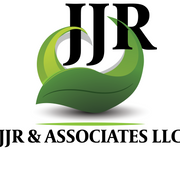
Freelancers face unique challenges when it comes to paying taxes. Since they must pay quarterly if they owe over $1,000 in taxes for the year, more work goes into tax prep than average full-time employees who only pay yearly. For this reason, freelancers can benefit from additional tax help, including the following strategic tips.
What Freelancers Should Know About Paying Taxes
1. Separate Business & Personal Accounts
Trying to manage finances from one bank account is cumbersome when you’re self-employed. Keep your business and personal finances separate by opening a different account for each. This will allow you to track your income and business expenses, which is important as these figures will determine how much you owe in taxes.
2. Keep Track of Your Tax Forms
While employees receive a W-2 from their companies, freelancers receive a 1099-MISC for any client from whom they received $600 or more. Keep track of these forms, as you’ll need to submit them with your taxes. Note that even if you made less than $600 with any clients, you’ll still need to report the money as taxable income.
3. Know Which Expenses Are Deductible
 Freelancers can deduct several expenses from their taxes, including costs of advertising, business supplies such as computers and software, and even insurance. You can also claim a home office deduction if there’s a space in your house used exclusively for business. For further tax help to determine potential deductions, browse the IRS’s list of expenses online.
Freelancers can deduct several expenses from their taxes, including costs of advertising, business supplies such as computers and software, and even insurance. You can also claim a home office deduction if there’s a space in your house used exclusively for business. For further tax help to determine potential deductions, browse the IRS’s list of expenses online.
4. Contribute to a Self-Employed Retirement Fund
Planning for retirement is a financially-smart move in general, but it can also help freelancers control the amount of taxes they’ll owe. For instance, an Individual Retirement Arrangement (IRA) allows you to make contributions without having to pay taxes on them until you take money out at a later date.
5. Plan Ahead for Next Year
Owing taxes is an inevitable fact for freelancers since taxes generally aren’t deducted from your income the same way they are through traditional employment. For this reason, it’s important to put aside money so you’re not surprised next tax season.
In addition to making quarterly payments, many freelancers also owe for their yearly taxes. Set aside 30% of your income to cover these payments, and recruit professional tax help to determine what you should be paying quarterly.
If you’re a freelancer seeking professional tax help, turn to JJR & Associates LLC in the Greater Atlanta area. This accounting firm offers highly personalized services to help everyone from individuals to entrepreneurs navigate taxes with ease. Call (404) 437-7748 to speak with one of their helpful associates, or explore their services online.
About the Business
Have a question? Ask the experts!
Send your question

